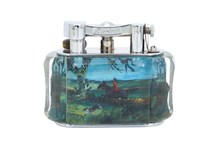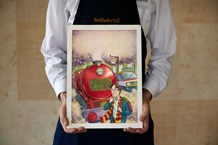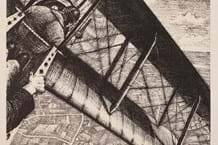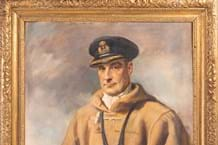These are not just the usual few strands of hair found in a locket. It’s the mother lode: an enormous mass of dark black clippings approximately the size of a baseball housed in a vacuum-sealed glass jar. They were obtained directly by the consignor, Tom Morgan Jr., from Homer “Gill” Gilleland, Elvis’s personal hair stylist for over 20 years.
Authenticated by John Heath, an expert in the pricing of Elvis artefacts and memorabilia, the hair has also been examined in person by John Reznikoff of University Archives, one of the nation’s foremost collectors of hair and also one of the most respected and trusted authorities within that specialised field. They have not, however, been DNA tested.
Bidding on the hair was due to start at $10,000 but – offering the buyer an almost unlimited potential for marketing – there is talk of a six-figure sum. It is not hard to imagine rings or pendants incorporating a strand of Elvis’ hair into the design. Look out for those tacky ads soon.
The tradition of saving a lock of hair as a keepsake has a long and distinguished history, dating back several centuries. In Victorian times, when a famous or well-known person would pass through town, it was much more common to ask for a lock of his or her hair, rather than an autograph, with those strands being an important and tangible remembrance of the meeting.
While it remains a very specialised field, collecting hair from the heads of historical figures has in recent years become increasingly popular, perhaps in part to modern advances in DNA research. For many the allure is the knowledge that one holds not just a strand of hair from their favourite celebrity, but also their inherent genetic makeup.
Your chance to acquire the King’s crown…
For all those fans who ever longed to run their fingers through Elvis Presley’s hair, now there’s a chance. While locks or strands of Elvis’ boot-polished black hair have been sold in the past, one of more than 1400 memorabilia lots in a sale closing on November 14-15 on www.mastronet.com is something just a bit special.




